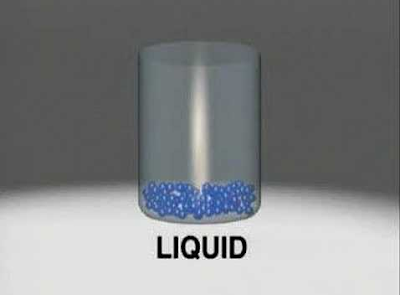Physical properties of Liquid
(1) Additive Property When a property of a substance is equal to the sum of the Corresponding properties of the constituent atoms, it is called an additive property . For example, molecular mass of a compound is given by the sum of the atomic masses of the constituent atoms. (2) Constitutive Property A property that depends on the arrangement of atoms and bond structure, in a molecule, is referred to as a constitutive property . Surface tension and viscosity and optical activity are examples of constitutive property. (3) Additive and Constitutive Property An additive property which also depends on the intermolecular structure is called additive and constitutive property. Surface tension and viscosity are such properties. (4) COLLIGATIVE PROPERTIES Colligative Properties (Greek colligatus = Collected together). A colligative property may be defined as one which depends on the number of particles in solution and not in any way on the size or chemical nature of...






Comments
Post a Comment